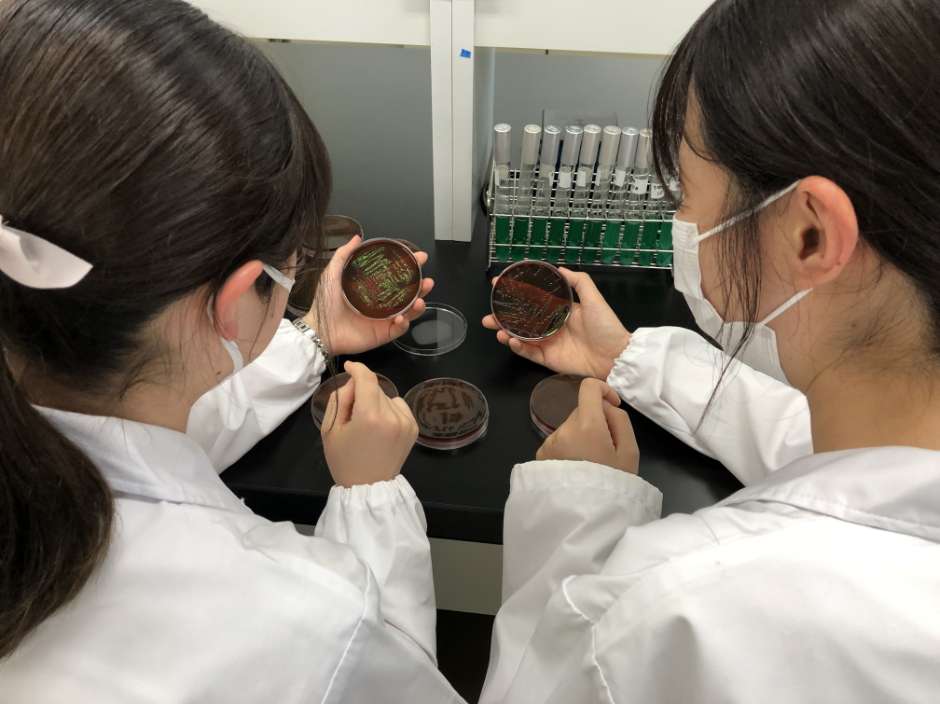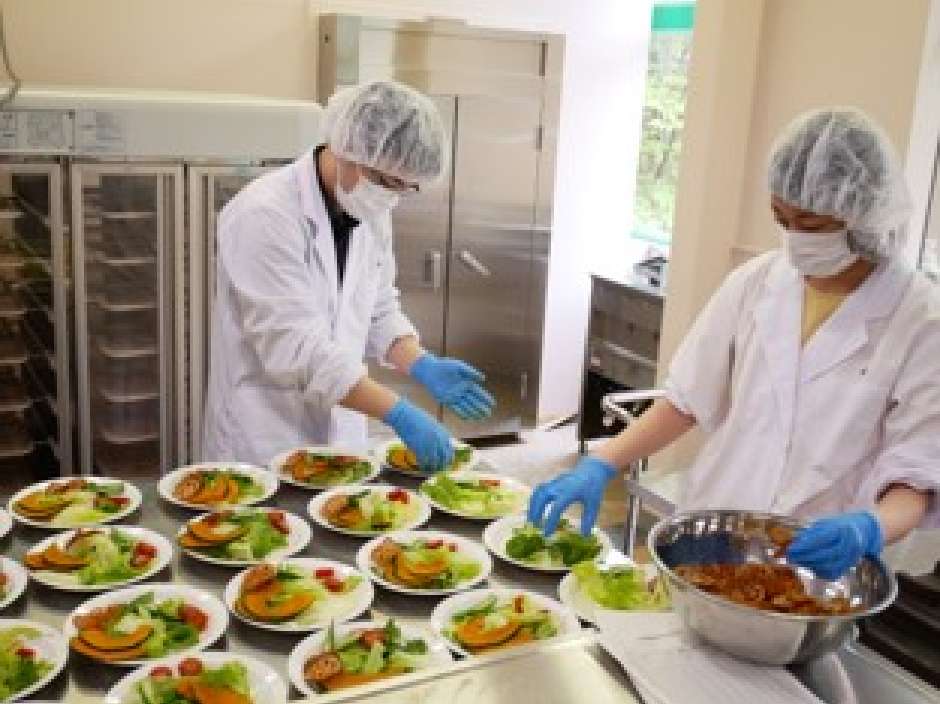Department of Nutrition
DEPARTMENT OVERVIEW
The Department of Nutrition reflects the results of graduate school research in undergraduate education. The department aims to train registered dietitians, researchers, and technicians who will play leading roles in society about food, nutrition, and health, and who possess both excellent scientific thinking and practical skills by providing interdisciplinary education in multiple fields related to food and nutrition, to create healthy and truly enriched dietary lifestyles, rather than merely acquiring qualifications.
The department fosters human resources based on five educational and research objectives.
- To learn the significance of food and nutrition science in contributing to health as food becomes more diversified and individualized.
- To study nutritional metabolism from the molecular level to the human body level to contribute to human health.
- Discover new functions of foods and nutrients, and conduct research for their practical application.
- Study practical nutrition based on nutritional science and nutrition education based on behavioral science and psychology.
- Foster an awareness of the need to improve people's "quality of life.
Specifically, students will cultivate the basic skills to meet a wide range of needs, from the planning and implementation of public health and public nutrition policies at government agencies to nutrition education for individuals and groups at schools and hospitals, to the development of new food materials and products at companies, to ensuring food safety, and to life science research, including food and nutrition science research.
FEATURES OF EDUCATION


Develop a scientific perspective through experiments and research
Scientific knowledge and experience are essential to becoming a professional who can solve various problems related to food and nutrition. Through many experiments, students will understand the characteristics of food ingredients and nutrients and learn their chemical properties and mechanisms of action in living organisms.
Learn about medical nutrition through onsite training
To understand the importance of "team medicine," in which multiple professions work together in medicine, students learn the role of dietitians in the Nutrition Support Team (NST), which provides optimal nutritional management through practical training at hospitals.
Develop practical skills in nutrition management
Students learn the basics of the PDCA cycle by comprehensively assessing nutritional status based on physical measurements, dietary surveys, etc., and formulating goals and nutritional care plans for problems. Students learn the knowledge and skills to apply this to healthy individuals, groups, and people with epidemics and acquire practical skills in nutrition management.
Spend a year working on graduation research
By the end of the third year, students have completed most of the credits required for the National Examination for Registered Dietitians. From the fourth year, students work on their graduation research in their respective laboratories, facing unknown challenges over a year and presenting the results of their study in front of faculty and students.
QUALIFICATION
Qualifications available in the Department of Nutrition
- Dietitian (License)
- Registered Dietitian (Examination Qualification)
- Food sanitation manager/food sanitation supervisor (Appointment qualification)
- Class 1 Certificate as a Junior High School/High School Teacher's License (Home Economics)
- Class 1 Certificate as a Nutrition teacher's License
*Each qualification and license have its requirements.